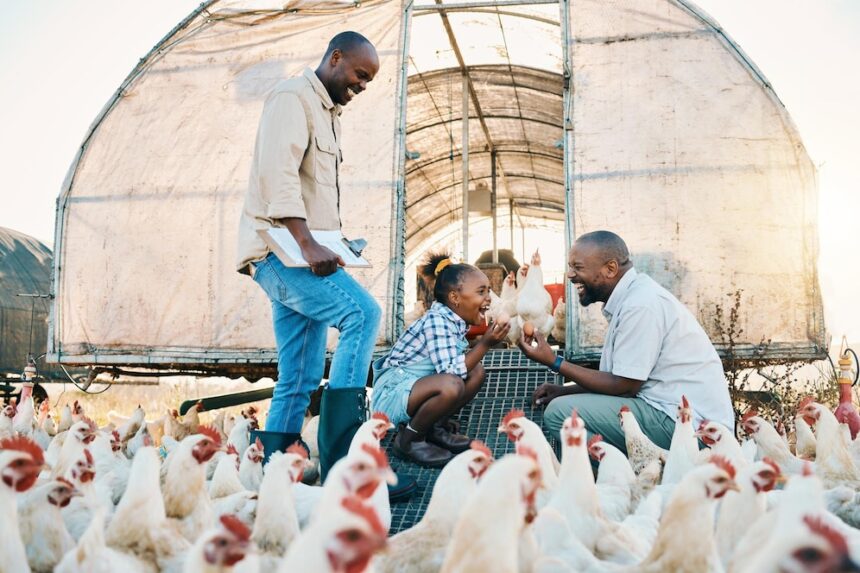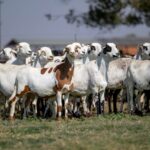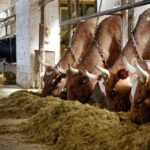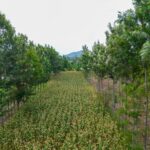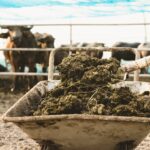Heatwaves are becoming more frequent and intense in South Africa, posing a serious threat to livestock health and productivity. When temperatures soar, animals face heat stress that can reduce feed intake, lower weight gain, decrease milk production, and even cause death if not managed properly. For small-scale farmers and commercial operations alike, protecting livestock during these extreme weather events is essential for sustaining farm income and animal welfare.
The first step in protecting your animals is recognizing the signs of heat stress. Animals may show rapid breathing, excessive salivation, lethargy, reduced feed intake, and increased water consumption. Ruminants like cattle and goats are especially vulnerable, but poultry and pigs also struggle with high temperatures. Monitoring your livestock closely during heatwaves allows early intervention and prevents serious health issues.
Providing adequate shade is critical. Natural shade from trees is ideal, but if that’s limited, consider installing shade structures made from shade cloth or other materials. The shade should cover resting and feeding areas to help animals cool down throughout the day. Position shade to block the harshest afternoon sun and ensure good ventilation underneath to avoid trapping heat.
Access to clean, cool water at all times is vital. Heat-stressed animals can drink up to three times their normal intake, so provide multiple water points to prevent crowding. Regularly check and refill water troughs, and if possible, supply water cooled or shaded from direct sunlight. In extreme heat, sprinklers or misting systems can help cool animals, but these should be used carefully to avoid creating damp, unhygienic conditions.
Adjusting feeding times and diet can also help livestock cope. Feeding during the cooler early morning or late evening encourages better feed intake. Offering more digestible feed with higher energy density reduces metabolic heat production during digestion. Avoid feeding large amounts of roughage midday when heat stress risk is greatest.
Good ventilation in animal housing reduces heat buildup and improves air flow. Open-sided barns or sheds with fans can lower temperatures and humidity. Ensure bedding is dry and clean to reduce heat retention and prevent respiratory issues. For poultry, adjusting stocking density to reduce crowding during heatwaves improves airflow and reduces stress.
Farmers should also consider breeding and selecting heat-tolerant livestock breeds or crossbreeds that cope better in hot climates. Indigenous breeds often have natural adaptations like lighter coats, sweat glands, and better heat tolerance, making them more resilient during South Africa’s frequent heatwaves.
In addition to direct animal care, managing pasture and farm environment plays a role. Maintaining healthy, shaded pastures with deep-rooted forage plants helps keep soil moisture and provides cooler grazing areas. Planting trees or agroforestry systems can create long-term shade benefits. Minimizing physical exertion and handling of animals during peak heat hours reduces stress.
Preparing for heatwaves with a farm-specific action plan is highly recommended. This plan should include monitoring weather forecasts, ensuring infrastructure is ready (shade, water systems), training farm workers to spot heat stress signs, and having emergency cooling options available. Quick response during heatwaves can save livestock lives and maintain farm productivity.
Heatwaves are a growing challenge for livestock farmers in South Africa, but proactive management can greatly reduce their impact. Providing ample shade, water, ventilation, and adjusting feeding practices are simple but effective strategies. Selecting heat-resilient breeds and improving farm environments further enhances animal welfare during extreme heat. By taking these steps, farmers can protect their livestock, safeguard their income, and build more climate-resilient farms for the future.
Join 'Farmers Mag' WhatsApp Channel
Get the latest Farming news and tips delivered straight to your WhatsApp
CLICK HERE TO JOIN
